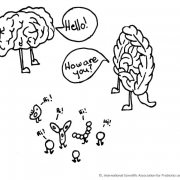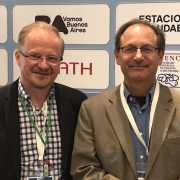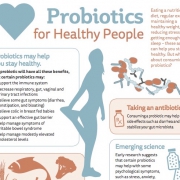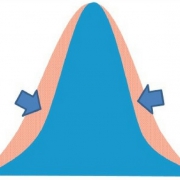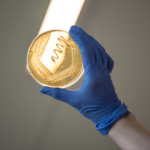Episode 30: A systems biology perspective on the gut microbiome
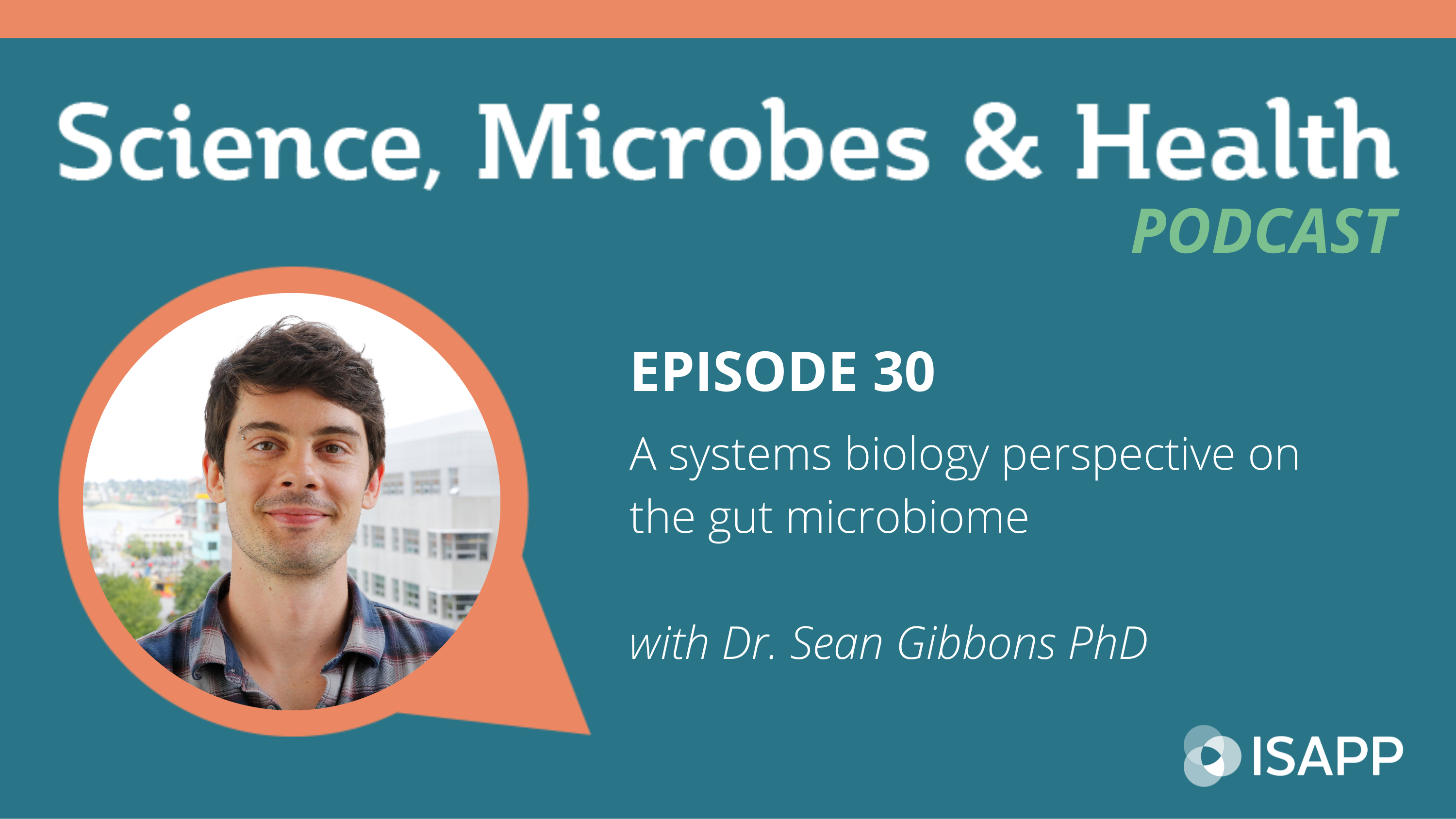
Podcast: Play in new window | Download
Subscribe: Apple Podcasts | Spotify | RSS
The Science, Microbes & Health Podcast
This podcast covers emerging topics and challenges in the science of probiotics, prebiotics, synbiotics, postbiotics and fermented foods. This is the podcast of The International Scientific Association for Probiotics and Prebiotics (ISAPP), a nonprofit scientific organization dedicated to advancing the science of these fields.
A systems biology perspective on the gut microbiome, with Dr. Sean Gibbons PhD
Episode summary:
In this episode, the ISAPP hosts discuss the microbiome and systems biology with Dr. Sean Gibbons PhD, Associate Professor at the Institute for Systems Biology in Seattle, USA. Prof. Gibbons talks about exploring and manipulating the complex ecology of the microbiome with the aim of engineering outputs of this system. He describes the utility of artificial intelligence in microbiome science and how the microbiome will play a role in personalized medicine in the future, including in the delivery of probiotics and prebiotics.
Key topics from this episode:
- Dr. Gibbons’ lab primarily focuses on designing bioinformatic tools for exploring and manipulating the complex ecology of the microbiome, and trying to shape the outputs of the system. He emphasizes the need for computational tools alongside traditional microbiological techniques, which are needed to validate computational findings.
- From the work so far, he says probiotics appear to be efficacious but context-specific, so the effects may appear dampened in trials with heterogeneous participants.
- He underlines that artificial intelligence (AI) is needed to integrate complexity and predict emergent outputs of a biological system that includes a microbiome. Reductionist approaches are somewhat limited because each component of a complex system may behave differently on its own.
- Diet is a key way to deliberately manipulate the gut microbiome. Researchers are working on how to push the system in a predictable direction. One approach is to create orthogonal niches for organisms: for example, an item in the diet (such as seaweed) that could support an organism that wouldn’t otherwise be there. His lab is working on tools that predict the likelihood of engraftment of a particular organism in a complex community.
- Reliable tools are needed to map taxonomic composition onto functional outputs.
- Two branches existed in the history of AI: (1) extracting new knowledge using approaches such as neural nets, and (2) A symbolic AI family of modelling, in which you already have knowledge and you can use it to make predictions about a system (making use of knowledge graphs).
- Dr. Gibbons says microbiome measurements will likely be a part of clinical medicine in the future, because the microbiome accounts for individuals’ personalized responses to some interventions that cannot be explained by any other known factor.
- In the future, we will be able to develop tools for precision prebiotic, probiotic, and dietary interventions through metabolic modelling work.
- Many probiotics have great efficacy in a particular context – so one challenge ahead is to find a rational way to deploy these organisms and to prove they work well. We will need to address the regulatory challenges inherent in personalized approaches as well.
Episode links:
- DGGE: Denaturing Gradient Gel Electrophoresis
- Paper on correlation analyses: Use and abuse of correlation analyses in microbial ecology
- Comment on a new approach to clinical trials required for precision medicine: Personalized medicine: Time for one-person trials
- Paper on the gut microbiome and statin response: Heterogeneity in statin responses explained by variation in the human gut microbiome
- Paper on developing niches in a microbial ecosystem: Orthogonal dietary niche enables reversible engraftment of a gut bacterial commensal
- Paper on horizontal gene transfer in the gut microbiome: Elevated rates of horizontal gene transfer in the industrialized human microbiome
About Dr. Sean Gibbons PhD:
Sean Gibbons earned his PhD in biophysics from the University of Chicago in 2015. He completed his postdoctoral work at MIT in 2018. Sean is now an associate professor at the Institute for Systems Biology, in Seattle. His lab studies the ecology and evolution of microbial communities. In particular, Sean is interested in how host-associated bacterial communities influence the health and wellness of the host organism. His group designs computational and wet-lab tools for studying these complex systems. Ultimately, the Gibbons Lab aims to develop strategies for engineering the ecology of the gut microbiome to improve human health.

